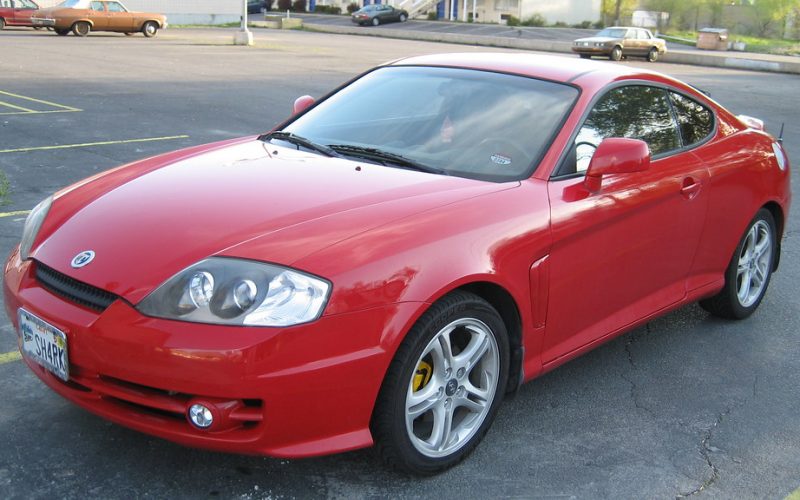By: Gregg R. Woodnick & Ian D. Haney (with an update by Isabel Ranney)
The article below provides a fantastic analysis of issues in the valuation methodology of vehicles. However, given the current (and unprecedented) automobile market, the information provided is effectively moot. True, Kelley Blue Book (KBB) and other valuation websites were the gold standard for settling disputes over vehicles in divorces. Many attorneys may recall printing out Blue Book or other data providers and bringing them to mediation or to a hearing to justify the requested vehicle value.
Now, individuals cannot rely on KBB and other similar online valuation data providers, as it may significantly underestimate the value of the car in the current market. With the bizarre influx in the resale value of used cars, that old 2003 minivan sitting in the car park is not worth $2,500 KBB predicted but may sell for as much as $10,000. This has created an avenue for legitimate arguments over the value of the equity in a car during a divorce proceeding.
Of course, this market, like the real estate market, is not going to be permanent and we can expect to return to relying on KBB or other car valuation data providers. But for now, it is advisable for individuals and attorneys to rely on the market price and the best way to determine that value may be to sell the asset, as it is likely worth exactly how much someone would pay for it. Experts, like Brian Sinuk, who contributed to the original article, are still important as they can fill in the gap between the stale reliance on published data and the current market.
There is roughly one vehicle for every two Americans.[1] The ubiquity of vehicles makes it difficult to imagine a divorce that doesn’t involve a vehicle. Regardless of whether the vehicle is a Honda Odyssey minivan or a vintage Packard that is part of an extensive car collection, utilizing a sound valuation methodology is crucial to both promote settlement and, if necessary, present compelling facts to the court.
However, valuing a car is not easy and the legal community continually fails to recognize its complexity. Rather than employing a principled methodology, lawyers and courts almost exclusively rely on web-valuators like Kelley’s Blue Book (“KBB”) or Edmunds. This could be serious misstep because these web-valuators are not tied to real cars or actual car sales. Consequently, inaccurate vehicle valuations pervade our courts and negotiations, which is a disservice to our clients.
Did you know websites like KBB and Edmunds fail to account for critical valuation factors? For example, they do not analyze used car sales, modifications, nature of operation (highway/city), maintenance regularity, accident history, or the condition of the interior. Instead, web-valuators base their figure on the original listing price of the vehicle, the listed sale price of the vehicle and similar vehicles at used-car dealerships, the self-reported exterior condition, and the mileage. In short, web-valuators don’t actually appraise the vehicle in question.
Web-valuators simply aggregate trends and, admittedly, provide a decent assessment for what a consumer would likely pay for a “stock” used car (i.e., without modifications) at a dealership. Considering the stereotype, trusting a used-car dealer’s price tag warrants some skepticism.
These days to get a better valuation, you can use web-valuators like carvana.com and autonation.com to get an actual cash offer. This provides a real number and better accounts for vehicle condition. Typically, these sites provide an estimate, but often they greatly underestimate the value of a car because they are trying to buy low. Certainly, caution is needed before adopting their figure. Another web-valuator, cars.com, is helpful for obtaining data on comparable vehicles. However, like most sites it is ripe with scammers, which can manipulate the data set.
Still, in cases where there are two basic family vehicles (e.g., a Honda Odyssey minivan and a Toyota Camry sedan) web-valuators are typically close enough to reach a fair result in settlement or at trial.
But what happens when it is more complicated? Imagine a family in Scottsdale with the basic vehicles noted above, plus they have a lifted Jeep Wrangler for weekends and a 1972 Chevelle project car. Here, web-valuators don’t get you very far. First, the web-valuators will not account for the lift-kit on the Wrangler, which costs thousands to install and can substantially enhance the value of the vehicle. Additionally, web-valuators are nearly useless to value a classic car like the 72 Chevelle because of the limited collector’s market. Also, because it is a project car the manner of restoration greatly affects the value. For example, if the husband restores the Chevelle personally, but doesn’t have mechanic experience, the value of the Chevelle would be dramatically less when compared to the same Chevelle that was restored by the realty-tv-star Danny “The Count” Koker.
So, what do you do when you web-valuators are ineffective? We have found that hiring an expert to value the vehicles in whole is a more accurate and cost-effective approach. Considering we often stipulate to appraisers for real-property, it makes sense to do the same for vehicles too. In the future, if you do decide to retain an expert, don’t forget about your disclosure obligations. ARFLP R. 49(j).
There are experts in Arizona, who have careers in vehicle valuation and often qualify as experts in diminished value claims. Recently, we spoke to Brian Sinuk of Carsultants, LLC regarding valuation of a multiple vehicle estate. Brian has inspected roughly 3,500 vehicles and has MBA from the University of Arizona, which has qualified him as a vehicle valuation expert pursuant to ARE R. 702. Ultimately, the information Carsultants provided us helped settle the case.
We learned, utilizing an expert will provide a report that is significantly more helpful than a web-valuator because it will highlight the individual variables that affect price. Specifically, experts consider comparable vehicles and conditions, along with the relevant geographic area trends. This individualized and holistic report will provide you with the facts needed to negotiate a fair settlement or convince the court of a vehicle’s value.
Still, deciding whether to use an expert must be warranted because of the cost. Typically, a single expert vehicle valuation will cost about $300. If a vehicle is only worth a couple thousand dollars and the value is not likely to be different from that provided by a web-valuator, an expert is unnecessary. However, like our example, when a family has multiple vehicles, experts usually charge a flat rate to inspect numerous vehicles in a single location, which can save clients thousands. More importantly, this qualified opinion tends to promote a global settlement as to vehicles.
Considering we often only receive three (3) hours to try a divorce, arguing over vehicle values is not a wise expenditure of time. Simply put, there are more important things that the court should be considering. Resolving car valuation with the help of a qualified expert will save you the dignity of squabbling over less important issues. And, if you can’t get it settled, you now have a qualified expert to explain to the court concisely the value of each of the vehicles.
—————–
Shout out to Brian Sinuk at Carsultants, LLC. Brian has kindly offered his two cents on value issues and makes himself available for questions regarding the retail and wholesale automotive industry. He can be reached at [email protected].
[1] Uri Daduch, In Search of the Global Middle Class: A New Index, Carnegie Endowment for International Peace (2012).



